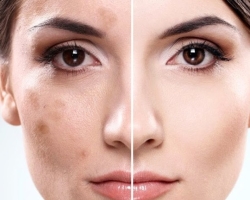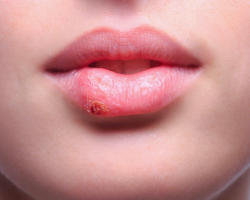Recently, scientists insist that a full -fledged dream for human health is much more important than before. We need a dream no less than food and air.
Content
- The effect of lack of sleep on the body
- Which provokes a chronic lack of sleep: possible diseases
- Lack of sleep: consequences for women
- Disadvantage of sleep: consequences for men
- Disadvantage of sleep: consequences for adolescents
- Lack of sleep during pregnancy: consequences
- Is it true that the lack of sleep leads to excess weight, obesity?
- Sleep deficiency and pressure
- How does the lack of sleep affect the psyche?
- Is it true that the lack of sleep leads to insanity, hallucinations?
- Is it true that the lack of sleep leads to the destruction of the brain?
- What is the danger of sleeping, is it possible to die from a lack of sleep?
- What provokes a chronic lack of sleep?
- How to compensate for the lack of sleep?
- Vitamins with a lack of sleep
- Video: What threatens constant lack of sleep?
However, the pace of modern life of an average person leads to the fact that the time for a night's rest remains less and less. Indeed, during sleep, the restoration processes of the body are launched, the balance of all its functions is renewed, and if the dream is disturbed, then the work of internal organs is disposed of.
The effect of lack of sleep on the body
Of course, each person has individual needs for a dream. Many of us heard that Bonaparte was sleeping about 4 hours a day, and Nikola Tesla cost only 2-3 hours. Of course, someone needs less relaxation, and someone needs additional hours of sleep. However, experts assure that for the optimal work of the body, each of us needs a good rest.
We list what happens to our body only after one sleepless night:
- The appearance worsens. Studies have established a connection between a lack of sleep and the aging of the skin. In addition, pallor and blue circles under the eyes due to lack of sleep do not add attractiveness.
- Excessive appetite appears. If a person was sleeping poorly, then he feels more hungry and, as a rule, chooses products more high -calorie and not very useful.
- The level of reaction and attention is reduced. This can cause negative consequences, especially if a person needs to get behind the wheel or perform a job that requires a high concentration of attention.
- Intellectual activity decreases, memory worsens. There are problems with memorization.
- The immune system weakens. It is proven that sleep lasting less than 7 hours three and a half times increases the risk of catching any infection. The fact is that during our sleep, cytokines are produced. This is a special protein that protects our body. From a lack of sleep, such protective proteins are produced less, and a person is sick longer.
- May appear dizziness, a person will overcome drowsiness in the daytime.

And insomnia, which has become chronic, can provoke a whole range of negative physiological effects:
- Vision of vision.
- Muscles pain.
- The tremor of the limbs.
- Headache.
- Memory losses.
- Nausea.
- Confusion and inhibition.
- Involuntary frequent blinking.
- Slow reaction.
- The incoherence of speech.
- The pain in the throat and runny nose.
- Problems of digestion and diarrhea.
- Violation of weight (loss or set).
Which provokes a chronic lack of sleep: possible diseases
The lack of sleep, or deprivation, is very destructive for our health. Scientists call the following diseases that can provoke a chronic lack of sleep:
- Reducing the resistance of the body, since the duration of sleep affects the work of T-lymphocytes that are responsible for immunity.
- Increases the risk of diabetes. The studies have confirmed that due to lack of sleep, sensitivity to insulin decreases, the body absorbs glucose worse, which can lead to illness.
- Fibromyalgia, or diffuse muscle-spell pain.
- Cardiovascular diseases. Due to chronic lack of sleep, the elasticity of blood vessels is disturbed, and calcium deposits are accumulated on their walls.
- The probability of a stroke in people sleeping less than 6 hours a day increases by 2 times.
- The risk of precancerous formations, which can develop into malignant. When the body does not fully rest, it begins to work for wear, which can provoke uncontrolled cell growth. We are talking about cancer of the mammary glands, intestines and prostate.
- The World Health Organization recognized night shifts to health, including due to lack of sleep with cancer.
- Hormonal disorders, which are directly related to the interruption of the deep phase of sleep.
- Alcoholism. Scientists have established a connection between chronic lack of sleep and attraction to alcohol. Those who sleep less than the prescribed time use large doses of alcohol.
- Alzheimer's disease. The fact is that during night sleep, toxic substances from the brain are removed. Including protein beta-amyloid associated with Alzheimer's disease. If a person does not constantly get enough sleep, these harmful substances accumulate in him, which can provoke this disease.

Lack of sleep: consequences for women
- According to research, women need about 70 minutes to achieve a phase of deep sleep, while men are only about 40 minutes. Usually, chronic lack of sleep in representatives The weaker sex is due social reasons, After all, most modern women combine work with raising children and conducting everyday life.
- They sleep little, not because they don’t want, but because they simply do not have enough time for long rest. Studies show that often our loaded ladies tend to underestimate the risk of sleep deficiency.
However, constant lack of sleep threatens women with many negative consequences, such as:
- Accelerated withering of the skin. In deprivation, the process of synthesis of skin collagen and surface regeneration are significantly slowed down.
- Weakening of coordination of movementswhich provokes frequent falls that cause fractures and bruises.
- Slow down reaction And the inability to make rational decisions.
- Hypertension and pressure increase 1.5-2 times.
- The risk of coronary heart disease in ladies of prelimacteric age.
- Decrease in libido due to physical and emotional fatigue.
- Infertility.

Interestingly, according to the report of the research center of sleep, the University of Lafboro, the female brain is arranged differently than the male. Women usually do several things at the same time and use more the potential of their brain. Therefore, they need more time to restore than men.
Disadvantage of sleep: consequences for men
Although many scientists argue that chronic lack of sleep is more dangerous for women than for men, lack of sleep negatively affects the health of a strong half:
- The amount of produced is reduced testosteroneaffecting sexual desire. Studies have confirmed that in non -sleeping men, the level of testosterone corresponds to the one that men have ten years older.
- The low duration of sleep often causes erectile dysfunction.
- The quantity is reduced sperm. In the course of the experiments, it turned out that young men who suffered from sleep disturbances, quantity sperm It is reduced by almost 30% compared to those who are fully resting.
- For more than 10 years, studies have been conducted, which showed that in men who sleep less than 6 hours, it increases significantly The risk of premature death.
- Scientists of Seoul University have found that men sleeping for less than 6 hours are more likely to suffer from metabolic syndrome. It is noteworthy that women, on the contrary, are more likely to be subjected to this ailment if they sleep for more than ten hours.

Disadvantage of sleep: consequences for adolescents
- Night sleep teenagers should last at least 9-10 hours. However, according to surveys, more than half of adolescents sleep much less.
- Modern children have many entertainment, because of which they are awake longer than the recommended time: communication with friends by phone, computer games, correspondence in social networks, and so on.
- Modern gadgets are becoming an obstacle to the rapid departure of children in bedtime. Often the child tells parents that he is going to sleep, and he sits for another three hours on the phone or tablet.
- But a full sleep for a teenager is very important. Indeed, it is in this age period, when active physical development occurs that rest is necessary to restore strength after daytime loads.

The constant lack of sleep is extremely harmful to the health of a teenager:
- Quite often appear problems with vision.
- Activity is reduced hypothalamus - a section of the brain responsible for obtaining and storing information. It is not surprising that adolescents with a chronic lack of sleep perceive new knowledge worse, and their performance is reduced.
- The child becomes very much Annoying and gloomy. It reacts sharply to comments, can fall into a depressive state.
- A teenager may have excess weight and problems associated with him.
Lack of sleep during pregnancy: consequences
- Doctors claim that woman's sleep during bearing a child It is extremely important, as it affects many factors. The recommended duration of sleep for the expectant mother is 8 - 10 hours. It is allowed to sleep more, but less - it is extremely undesirable.
- However, during pregnancy, women are often disturbed due to psychological state and physical discomfort.
The lack of sleep can be caused by the following reasons:
- Changing the hormonal background.
- Frequent calls for urination.
- Unpleasant sensations in the pelvis.
- Low back pain.
- Fear of the upcoming birth.
- Toxicosis.

Chronic deprivation during pregnancy negatively affects the physical and emotional state of the future mother:
- The appetite worsens.
- Excessive fatigue appears.
- The immunity is reduced, which can adversely affect the bearing of the child.
- Chronic diseases may worsen.
- A woman is covered by irritability or depression.
- The probability of cesarean section increases 4 times.
- The risk of longer births increases.
- There is a high probability that a child can be born with a low body weight.
Therefore, a pregnant woman who cannot cope with chronic insomnia should consult a doctor.
Is it true that the lack of sleep leads to excess weight, obesity?
- When a person does not get enough sleep, the body tries to be different ways to compensate for the lack of energy, in particular food use.
- Experts studying the influence of the lack of sleep on the functioning of the human body have found that when lack of sleep secretion of somatotropic hormone Significantly suppressed. And with a lack of this hormone, excess calories are converted not into muscles, but into fat deposits.
- Besides, lack of sleep leads to suppressing that part of the brain that is responsible for managing the appetite. But the activity of the centers of the brain responsible for pleasure increases significantly. This makes a person choose more high -calorie foods.
- And constant fatigue caused by lack of sleep, reduces the physical activity of a person, Which is also one of the reasons for gaining excess weight.
- Thus, constant insomnia really contributes to obesity.
- The dependence of excess weight on the lack of sleep is most pronounced In children and adolescents. Scientists explain this by the possible sensitivity of children's metabolism to lack of sleep.

Sleep deficiency and pressure
- Experts found out that lack of sleep and increased blood pressure interconnected. In a dream there is a decrease in pressure. And in case of lack of sleep, the body does not have time to lower it in a natural way.
- Due to lack of sleep in the body, the number of stress hormones increases, such as cortisol and adrenaline. As a result, there is an increase in blood pressure. And this, in turn, threatens with heart failure, atherosclerosis and heart attack.
- The studies have shown that high pressure begins to decline when people increase the duration of night rest by at least an hour.

How does the lack of sleep affect the psyche?
Recently, scientists often conduct experiments to determine how the lack of sleep affects the human psyche. So, as a result of such studies, it was revealed that the psychological state of people who slept for less than 5 hours a day differed in the following characteristics:
- Increasing the level of anxiety and stress. Often there was an increase in distrust of others and even close people. Many "lacking" avoided contacts with people.
- Irritability. When a person sleeps little, then the zones of the brain responsible for emotionality become twice more reactive. Without sleep, the brain switches to more primitive activity and does not control emotions.
- A predominance of negative emotions.
- Manifestations anger And even hostility.
- Pit dwellings. People became troubled, their psycho -emotional state was constantly changing.

Insomnia, which has become chronic, extremely negatively affects the psyche:
- In a critical situation sleepy A person cannot make the right and quick decision, since he is not able to adequately evaluate the circumstances. Even after one sleepless night, the individual is inclined to focus only on negatives when making decisions.
- Irritability and bad mood Due to constant fatigue, they lead to difficulties in communication.
- People who are constantly not sprinkled, are 4 times more prone obsessive thoughts and the development of mental disorders.This is because from a lack of sleep in a person more negative thoughts appear, and he simply focuses on them.
- Ned -sleeping provokes depression. This is because the lack of full sleep suppresses the adrenal function, and the production of serotonin slows down.
Is it true that the lack of sleep leads to insanity, hallucinations?
- A long lack of sleep it distorts the perception of emotions and intentions. People who constantly do not get enough sleep are often unable to distinguish between a friendly or neutral expression on the face of the interlocutor from the threatening or hostile.
- At extreme stages of sleep deficiency A person may begin hallucinations. Shadows may seem to them, objects seem blurry, and the surrounding reality becomes unrealistic.
- Thus, the lack of sleep leads to a change in consciousness. This condition is similar to alcohol or narcotic intoxication. It must be said that long -term deprivation can cause psycho -dependence.

Is it true that the lack of sleep leads to the destruction of the brain?
- Scientists say that The lack of sleep leads to the destruction of the brain. Pennsylvania conducted experiments on laboratory mice, creating for them conditions similar to those in which a modern person working on a night shift or having a very long working day lives.
- The results of the studies showed that lack of sleep in experimental animals provoked a stop of the production of sirtuin, which led to the death of 25 percent of their brain cells. And even a few days later a good rest The destroyed neurons could not recover.
- Thus, a chronic lack of sleep can really lead to the destruction of the brain. Insomnia threatens with loss before a quarter of key neuronswho are responsible for intellectual activity and attention.
- In addition, experiments on animals showed that with insomnia the number of stress hormones increases, which leads to a slowdown in cell regeneration.
- Scientists have to conduct additional studies that will help determine whether the conclusions obtained are applicable About damage to brain cells Due to constant lack of sleep to a person.

- If this turns out to be fair for people, then this means that daytime sleep or sleeping on weekends, unfortunately, will not be able to compensate for the lost cells.
- This is confirmed by the latest experiments conducted in Sweden. A group of young men fully rested for one night, and was awake during the other. Scientists have found that even after one night, a lack of sleep in the brain of the subjects increased the number of proteins, which usually appear when the brain tissue is destroyed.
What is the danger of sleeping, is it possible to die from a lack of sleep?
- In the course of experiments conducted since the end of the 19th century, scientists did not allow dogs or rodents for several weeks. As a result, animals inevitably died. However, it is reliably unknown from what exactly the fatal outcome came from - from a lack of sleep or due to the stress that experimental animals experienced.
- In 1963, 18-year-old Rand Gardner He set a record of maximum stay without sleep. He was awake for 264 and a half hours without the use of any stimulants under the supervision of Dr. William K. Dement.
- On the fourth day of the experiment, the young man appeared distortion of sensory organs, violation of coordination. And on the fifth day, he began hallucinations. An analysis of the electromagnetic activity of the brain showed that Randy was in a strange state, he was not quite awake.
- The areas of his brain either began to go into recreation mode, then again activated. That is, in order to survive, the brain alternately turned on and turned off parts of the brain. After a long rest, Rand Gardner did not find any mental abnormalities.
- It follows that the human body, apparently, is adapted to the infrequent episodic periods of lack of sleep. But neglecting night rest for a long time can become fatal to health.

- Nowadays there is a rare disease called fatal family insomnia. It provokes its mutation, synthesizing the protein of an abnormal structure - auo. In carriers of a similar mutation in adulthood, starchy plaques are formed for the regulation of sleep (thalamus).
- As a result, such people have insomnia, killing them for six months. However, the cause of death in these cases, according to scientists, is not a lack of sleep, but serious damage to the brain.
- To date, it is not known exactly how much the human body can withstand without sleep. Realizing the harm that such experiments can bring to people, achievements in the field of prolonged wakefulness are no longer recorded.
What provokes a chronic lack of sleep?
Many people have attacks of insomnia. As a rule, they are associated with stressful situations. Moreover, the cause can be both negative and positive emotions.
The quality of sleep is influenced by a number of factors:
- The temperature in the room. With a decrease or increase in temperature, sleep will deteriorate.
- An uncomfortable atmosphere And the lack of a sense of security. It is known that when a person feels protected, he does not experience stress, and the quality of his sleep increases.
- Noise. It is natural that extraneous sounds prevent a person from falling asleep.
- Improper nutrition. It prevents the rapid falling asleep both malnutrition and overeating before going to bed.
- Alcohol consumption. On the one hand, alcoholic beverages contribute to rapid falling asleep. However, drunk dream is often restless and fraught with early awakening.
- Products with high caffeine content. It is not only about coffee or tea, but also about carbonated drinks and chocolate, which often have a high caffeine content.
- Taking certain drugs. Many medicines (especially those that reduce cholesterol and blood pressure) negatively affect sleep.
- Anxiety and state of stress. When a person constantly considers something or is upset, it is extremely difficult for him to fall asleep.
- Some diseases, such as Neurosis, deep depression, concussion, arthritis, asthma and others.
- Metered work schedule or frequent trips. The body simply does not have time to rebuild and adapt to new conditions.
- Climax in women. This condition is often accompanied by sweating and tide, which do not allow the muscles to completely relax.
- Hormonal disorders associated with thyroid diseases.
- Avitaminosis.

It is important to understand why a person has sleep disturbances. If, after the disappearance of the reasons that can impede normal rest, the dream is not established and insomnia torments for more than three months, you must consult a doctor.
How to compensate for the lack of sleep?
- One way to at least somehow compensate for the lack of sleep on weekdays is substitute as much as possible on the weekend. This, of course, will not be able to completely make up for the missing hours of rest, but will contribute to maintaining health.
- During the experiments, it was found that people who slept more in advance than necessary, during the subsequent period of lack of sleep, coped with tasks at the same level.
- However, this method cannot be used constantly. Most scientists believe that chronic lack of sleep on weekdays cannot be completely compensated by scraping on weekends.

According to experts, the most effective method to compensate for the lack of sleep is to take a nap during the day:
- Try to ensure the dimming in the room.
- Create silence.
- Take a convenient pose (ideally - lay down, but you can doze and half -sitting).
- Rest with your eyes closed for 20-30 minutes. If the conditions allow, sleep for about an hour. It is no longer recommended so as not to break the night sleep.
In addition, if, due to circumstances, you have little time to sleep, doctors recommend that you eat and take multivitamins balanced.
Vitamins with a lack of sleep
Doctors argue that violation and lack of sleep is often caused by a lack of certain vitamins:
- Magnesium. His lack provokes the appearance of nervousness, which negatively affects the ability to fall asleep and the quality of sleep itself. Magnesium sources are fish, lentils, green vegetables, Brazilian nuts.
- Potassium. It contributes to the work of the skeleton and muscles. And he is also responsible for the tendency of a person to wake up at night several times. Contained in products such as bananas, spinach, legumes, avocados, dried apricots.
- B vitamins V. Have a positive effect on the brain. Their deficiency provokes anxiety, irritability and tension in a person, which contribute to a poor -quality rest. In large quantities, vitamins of this group contain cereals, liver, rye bread.
- Vitamin C. It is a powerful antioxidant. Its disadvantage causes rapid fatigue and decrease in physical and mental activity. Sources of this vitamin are parsley, currants, rosehips, bell pepper, citrus fruits.
- Vitamin D. This is an element that helps strengthen immunity. Due to the lack of vitamin D, a feeling of apathy and lethargy may appear. It is contained in fish oil, algae, egg yolk.
With a lack of sleep, to get rid of chronic lack of sleep, drugs with a slight sedative effect are recommended: Novo-Passit, motherwort Forte with magnesium B6, donormil (it cannot be taken for more than five days, since it is intended to combat transonant), tunnel, Seditol.

In addition, if you are overcome by chronic insomnia, create favorable conditions for a night's rest:
- Try to change your mode. Experts recommend getting up every day, even on weekends, at 5 in the morning and subject themselves to bright light for 15 minutes.
- If anxious thoughts prevent you from falling asleep, then get up and do something. And when you feel fatigue, return to bed.
- Sleep in a cool room. The temperature is optimal - 18 degrees.
- Limit the amount of coffee and alcohol consumed.
- Two hours before bedtime refuse the TV, computer, phone or tablet. Due to the blue light that electronic devices radiate, a person wants to sleep less. In addition, the use of gadgets stimulates the activity of the brain, so it is difficult for a person to turn off the work of his consciousness and quickly fall asleep.
- If possible, take hiking 1.5 hours before bedtime.

And to get rid of chronic insomnia, you can use the trusted folk remedies:
- Chamomile tea.
- A decoction of mint and root of valerian.
- A spoon of honey dissolved in a glass of warm water.
- Homemade pillow with soothing herbs: lavender, lemon balm, St. John's wort.
Remember that sleep is an undeniable biological need of a person and an important part of a healthy lifestyle.








The lack of sleep leads to nervous disorders, I know by itself. After a sleepless night, everything is falling from my hands, I am suppressed and even hysterics can happen. It’s better to get enough sleep, that's for sure. To sleep normally, after a nervous day, I take a bath with a juniper, relaxes. In general, periodically I drink the motherwort Forte Evalar, relieves nervous tension and improves sleep. In addition, in the composition of magnesium and vitamin B6, the nerves strengthens well.